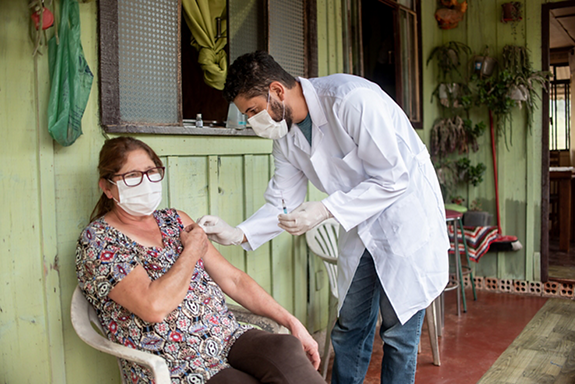COVID-19 Vaccination Success Stories in Rural Communities

Problem
COVID-19 created new challenges for rural communities and CDC wanted to understand their experience and lessons learned.
Many rural communities across the United States have struggled with COVID-19 vaccination efforts. CDC was interested in learning about the factors influencing COVID-19 vaccine confidence, strategies implemented to address vaccine demand and access barriers, individual-level perspectives on COVID-19 vaccination, and lessons learned.
Solution
Nuanced case studies on six communities provided a rich understanding of their struggles and successes.
NORC, in partnership with East Tennessee State University, conducted an in-depth qualitative study to understand better understand vaccine confidence and demand in rural communities. The qualitative study included an environmental scan, an analysis of social media data to understand common messengers and content of posts related to COVID-19 vaccination, and case studies in six rural communities to understand successful strategies and lessons learned to increase COVID-19 vaccination.
Result
The six rural case studies emphasized the importance of engaging local partners in the COVID-19 response, engaging trusted messengers, and maximizing convenience and access to the vaccine.
Through the study, we learned that major factors influencing vaccine hesitancy and acceptance include confidence, complacency, and convenience. Strategies to overcome a lack of confidence in the COVID-19 vaccine included leveraging trusted messengers, developing messages tailored to community culture, beliefs, or values, and disseminating education and messaging through multiple channels.
Strategies used to overcome complacency included providing incentives for receiving the COVID-19 vaccine and implementing vaccine mandates. Lastly, approaches to address convenience included implementing off-site clinics in familiar locations, providing vaccine appointment and scheduling assistance, addressing transportation barriers, and developing educational resources in multiple language.
Related Tags
Project Leads
-
Megan Heffernan
Senior Research ScientistProject Director -
Jennifer Berktold
Principal Research ScientistSenior Staff








